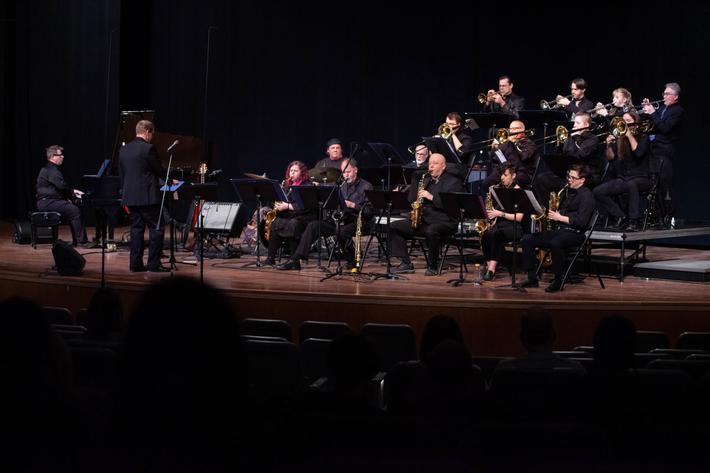An Ally for Special Ed Families
Aug. 5, 2016

Those trying to navigate the ins and outs of special education have an ally: Nicole Miller and the Michigan Alliance for Families (MAF). The statewide network offers expertise and fellowship, both of which are crucial for parents of children with disabilities. The MAF provides information, support, and education for families who have children who receive (or may be eligible to receive) special education services from birth through 26 years of age.
Miller is one of 20 parent advocates in Michigan. “I assist all those in need of special education services,” she said. They come to her from a variety of sources: workshops, events, open houses at schools, queries through the website (MichiganAllianceFor- Families.org), and more.
Miller is based in Kingsley, and her service area includes Grand Traverse, Antrim, Benzie, Kalkaska, Leelanau, Manistee, Missaukee, and Wexford counties. Depending on where the student lives, they may go to school nearby but travel elsewhere for additional services. “What is accessible for you?” she said. “Do you travel to Cadillac? Do you go to Traverse City or Ludington? If you’re in Antrim, do you go to Charlevoix?” Within her territory are three intermediate school districts, government agencies that assist local school districts in providing programs and services. “The ISDs are pretty much the same,” she said, but the differences among the individual school districts the support can be striking.
Take the region’s largest school district, Traverse City Area Public Schools. By virtue of its geographic spread, TCAPS serves many students with disabilities and consequently offers a host of programs for them.
But smaller district, which have fewer numbers of students, might not have the same resources, so it is often up to parents to advocate for their children.
That is where Miller can come in. She helps parents determine what their child needs and how to get it. “Inclusion is a very common concern,” she said. Another is behavioral needs, trying to determine what the student’s behavior is trying to communicate. A third is disability-specific support — for example, children with autism have different needs than those with a visual impairment.
Preparing students with disabilities for post-school activities is challenging for all those concerned: the school, the student, and family members. Federal law requires special education services be available through age 21. In Michigan, special education services can extend through age 26.
Regardless of when it takes place, such a major change brings with it special challenges and trepidation. “Transition is very difficult, very challenging,” said Miller. “Every family has its culture and value system, and so does the community. It’s an opportunity to talk about lifelong planning — employment, housing, benefits, relationships.”
Sometimes that lattermost area is the most difficult for parents to discuss. Parents might not have thought about long-term changes as their child becomes a young adult. Miller said it is typically difficult for parents to realize their child might want to have an intimate relationship with another person.
Most general education students begin the process of separating from parents as teens — the typical teen rebellion. “In dealing [with kids with disabilities] that’s a harder process. We inadvertently teach [a student with disabilities] to be a good, compliant learner. Then adulthood comes,” Miller said.
When educational services end, it can be a shock. Miller said what is needed is what she calls the artful unwrapping of the intensive services that have cocooned the student.
“We have to have intelligent discussion and planning around their needs so they can reach their fullest potential. They are community members,” she said. Otherwise? “It’s like falling off a cliff.”
Ultimately, the goal of MAF is to increase the involvement of families in their children’s education. It is something all staff members are familiar with; every MAF employee has a family member with disabilities and has first-hand experience navigating the special education system.
That includes Miller, who has a child with a disability and a keen understanding of the value of a parent advocate. MAF members believe a parent’s input into his or her child’s education is critical, as the parent knows how he or she learns, what is easy and what is hard. Perhaps most importantly, the parent helps the school understand the child.
The MAF website offers resources and information on nearly 200 topic areas. While the content is rich and deep, Miller warns that not everything applies in every situation. “Northern Michigan may not look the same as southeastern Michigan,” Miller said. She hosts a number of workshops and is comfortable talking to parents about the challenges they are facing. “Where do they live and which [school] district? We can discuss the local resources, what is accessible.”
Miller said serving as a parent advocate is more than just a job. “For me, it’s about helping the community grow and expand, a place where every child with a disability is accepted. I hope I’m passing the torch to the next generation.”
Trending

Springtime Jazz with NMC
Award-winning vibraphonist Jim Cooper has been playing the vibraphone for over 45 years and has performed with jazz artist... Read More >>
Dark Skies and Bright Stars
You may know Emmet County is home to Headlands International Dark Sky Park, where uninterrupted Lake Michigan shoreline is... Read More >>
Community Impact Market
No need to drive through the orange barrels this weekend: Many of your favorite businesses from Traverse City’s majo... Read More >>


